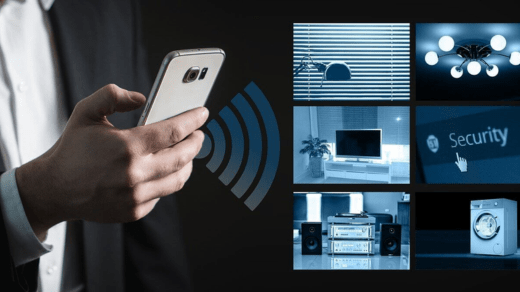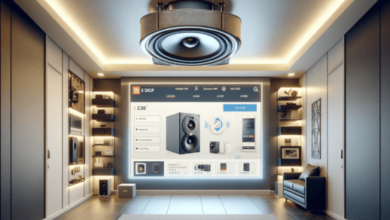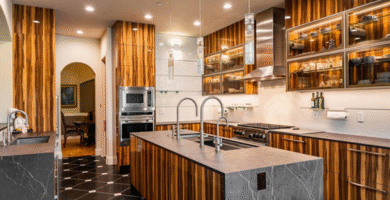The Ultimate Guide to Smart Home Security: Protecting Your Home in the Digital Age

In an era where technology permeates every aspect of our lives, smart home security has emerged as a pivotal element in protecting our homes and loved ones. With the rise of smart devices, homeowners now have access to innovative security solutions that offer convenience, efficiency, and peace of mind. This article will explore the benefits of smart home security systems, the key components to consider, and tips for selecting the right system for your needs.
Understanding Smart Home Security
Smart home security encompasses a range of devices and technologies designed to safeguard your home from potential threats. These systems allow homeowners to monitor their property remotely, receive alerts about suspicious activities, and even control security measures from their smartphones or tablets. By integrating various devices, such as cameras, motion detectors, and smart locks, you can create a comprehensive security system tailored to your specific needs.
Benefits of Smart Home Security Systems
- Real-Time Monitoring: One of the primary advantages of smart home security is the ability to monitor your property in real time. Smart cameras provide live video feeds that can be accessed from your mobile device, allowing you to keep an eye on your home from anywhere in the world.
- Instant Alerts: Smart home security systems can send instant alerts to your phone if any unusual activity is detected. Whether it’s a motion sensor being triggered or a door being opened, you’ll be informed immediately, enabling you to respond quickly.
- Remote Access and Control: With smart home security, you can control various aspects of your security system remotely. For instance, you can lock or unlock doors, adjust camera angles, and turn on or off lights from your smartphone, providing you with unparalleled convenience and peace of mind.
- Enhanced Deterrence: The presence of smart security devices can deter potential intruders. Features such as motion-activated lights and visible security cameras can make your home less attractive to criminals, reducing the likelihood of a break-in.
- Integration with Other Smart Devices: Many smart home security systems can be integrated with other smart devices, such as smart lights, thermostats, and voice assistants. This interconnectedness allows for greater automation and efficiency, enhancing your overall home experience.
Key Components of a Smart Home Security System
When setting up a smart home security system, there are several key components to consider:
- Smart Cameras: These devices are essential for monitoring your property. Look for cameras with features such as night vision, two-way audio, and motion detection to enhance their effectiveness. Indoor and outdoor cameras can provide comprehensive coverage of your home.
- Smart Door Locks: Smart locks allow you to control access to your home remotely. You can lock or unlock your doors from anywhere, and many models offer features such as keyless entry, temporary access codes for guests, and activity logs.
- Motion Sensors: Motion sensors detect movement and can alert you when someone enters a restricted area. These devices can be placed around entry points, in hallways, or even in the yard to enhance your home’s security.
- Smart Alarms: An integrated alarm system can provide an added layer of protection. These alarms can be programmed to sound if motion is detected or if doors or windows are opened unexpectedly.
- Smart Hub: A smart hub connects all your devices, allowing for centralized control. It can facilitate communication between different smart security devices and other smart home gadgets, streamlining your home automation experience.
Choosing the Right Smart Home Security System
When selecting a smart home security system, consider the following tips:
- Assess Your Needs: Evaluate the size of your home and the specific areas you want to monitor. Determine which features are most important to you, such as video surveillance, remote access, or integration with other devices.
- Research Options: Look for reputable brands and read customer reviews to find systems that have proven reliability and ease of use. Comparing different products will help you make an informed decision.
- Consider Professional Monitoring: Some systems offer professional monitoring services, where a team can respond to alarms and alerts on your behalf. This can provide additional peace of mind, especially if you travel frequently.
- Check Compatibility: Ensure that the devices you choose are compatible with each other and can integrate with your existing smart home ecosystem. This will help you avoid potential issues down the line.
Conclusion
In a world where home security is more crucial than ever, investing in a smart home security system can provide the safety and peace of mind you desire. By understanding the benefits, components, and considerations for choosing the right system, you can take proactive steps to protect your home and loved ones effectively. Embrace the power of technology and enhance your home’s security with smart solutions that fit your lifestyle.





